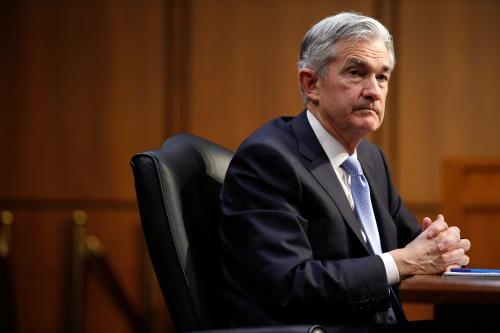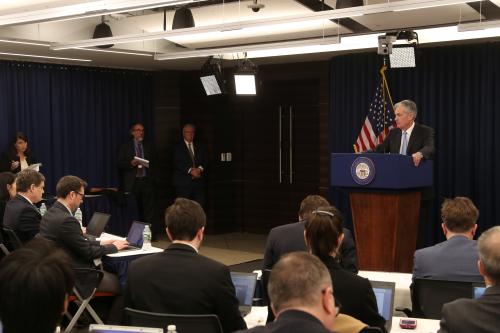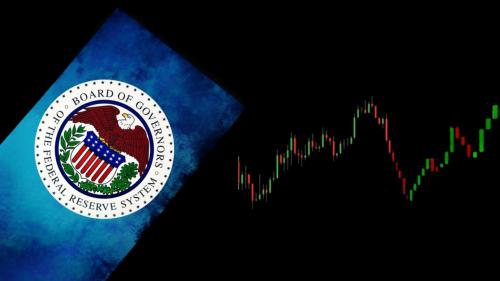This post originally appeared in WSJ Pro Central Banking on December 18, 2017.
Janet Yellen is about to leave the Federal Reserve with an impressive track record. She has begun to wean the economy off extraordinarily low interest rates and quantitative easing with hardly a hiccup from financial markets. U.S. unemployment is at 4.1%, the lowest in 17 years. Inflation is running around 1.5%—a bit below the Fed’s target but close to price stability. “There has been less to lose sleep about than has been true for quite some time,” she said Wednesday at her valedictory press conference.
Nonetheless, her designated successor, Fed governor Jerome Powell, faces some formidable challenges:
How far and how fast to raise rates. Fed officials have lifted rates by a full percentage point in the past year and expect to raise them by three-quarters of a percentage point in 2018. But that assumes inflation rises toward their 2% target. If it doesn’t, Mr. Powell will have to decide whether to delay those increases and admit the Fed misread the economy or continue them because he sees a tightening labor market as a portent of higher inflation.
The tax cut. Mr. Powell has to judge how the tax bill, assuming it passes, will affect the economy. Will it boost demand in an economy already near or at full employment? If so, the Fed probably will raise rates faster than planned. Or will it boost supply by inducing more investment? If so, the Fed can relax a bit because the economy can grow faster than anticipated without generating too much inflation. And he’ll have to figure this out in advance.
The politics. President Donald Trump hasn’t criticized the Fed, but that may not last–particularly if the economy or financial markets stumble in the run-up to the 2018 midterm elections. Everyone will be watching Mr. Powell to see if he bends to political pressure or stands up to it.
The next recession. Sometime in his four-year term, Mr. Powell may confront a recession. In past recessions, the Fed has cut interest rates by four or 5 percentage points, but few Fed officials see short-term interest rates rising above 3.25% in the next few years. That would make a four- or five-point rate cut impossible. So if a recession hits, Mr. Powell will have to consider unconventional monetary policies–more bond buying, perhaps even negative interest rates–and that may not be popular inside or outside the Fed.
Mr. Powell has been at the Fed for five years as Ben Bernanke and Janet Yellen successfully steered the economy to a pretty good place. I don’t know what Mr. Trump told Mr. Powell when he gave him the nod, but I can bet what he was thinking: “Don’t screw it up, Jay.” We are all thinking pretty much the same thing.





Commentary
Op-edThe challenges Yellen bequeaths Powell
December 19, 2017